The End
Brief Synopsis
Cast & Crew
Burt Reynolds
Burt Reynolds
Sally Field
Pat O'brien
Dom Deluise
Jerry Fujikawa
Film Details
Technical Specs
Synopsis
Wendell Lawson has only six months to live. Not wanting to endure his last few months of life waiting for the end, he decides to take matters into his own hands and enlists the help of a delusional mental patient to help him commit suicide.
Director

Burt Reynolds
Cast

Burt Reynolds
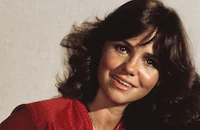
Sally Field
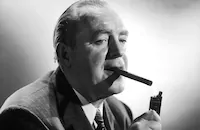
Pat O'brien
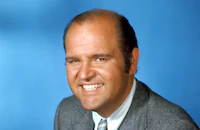
Dom Deluise
Jerry Fujikawa
Ken Johnson
Harry Caesar
Queenie Smith

Carl Reiner
Patrick Moody
Peter Gonzales
Robert Rothwell
Jean Coulter
Janice Carroll
Carolyn Martin

Norman Fell
Edward Albrecht

James Best
Louise Letourneau
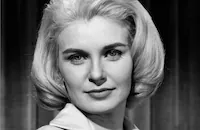
Joanne Woodward
Robby Benson
Bill Ewing

Kristy Mcnichol
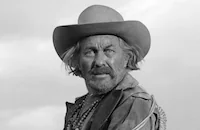
Strother Martin

Myrna Loy
Alfie Wise
Jock Mahoney

Frank Mcrae
Connie Fleming
David Steinberg
Crew
Kurt Baker
Jerry Belson
James Best
Harry Betts
Milton C Burrow
Bobby Byrne
Donn Cambern
Glen Campbell
Melvin D Dellar
Tom Ellingwood
John Franco
Ian Freebairn-smith
Larry Gordon
Anthony Ippolito
Hank Moonjean
Lisa Mordente
Hal Needham
Richard Portman
Robert Arnold Reich
Benjamin Rosenberg
Norman Saling
Joan Scott
Jack Solomon
Dorothy Vitale
Carol Wenger
Cliff Wenger
Paul H. Williams
Paul H. Williams
Film Details
Technical Specs
Articles
The End (1978) - The End
The script for The End, which was written by Jerry Belson (Smile [1975], Fun with Dick and Jane [1977]), had been peddled from studio to studio for more than six years without any takers until Reynolds became captivated by it and decided to take the plunge. Yet, despite Reynolds' box office clout at the time, he had to accept a cut in the percentage money of the profits and to cut his usual salary requirements in half to get the movie made. Also, in order to direct the film (it would be his second effort, Gator (1976) was the first), he had to agree to star in it as well.
According to Burt! The Unauthorized Biography by Marc Eliot, the star revealed that he got the idea for The End during a brief hospital stay at Cedars-Sinai hospital in Los Angeles where he would play cards every day with the elderly patients on his floor. The reality, of course, was that Belson's script already existed and its macabre humor was what inspired Reynolds to make it.
The director/star immediately set about assembling a crew and cast, some of whom were close friends and associates such as Smokey and the Bandit director Hal Needham (for stunt coordinator), producer James Best (the prolific film and TV actor who befriended Reynolds when the latter was a student in his acting school), composer Paul Williams (who played the role of Little Enos in Smokey), and cinematographer Bobby Byrne (who shot Smokey). In addition to Sally Field, Reynolds also cast Dom DeLuise as mental patient Marlon Borunki (it was the first of many screen collaborations with Reynolds), comedian David Steinberg as his psychiatrist, Norman Fell as his physician, character actor Strother Martin as the head of a sanatorium, Joanne Woodward as his ex-wife, Kristy McNichol as his daughter, Carl Reiner as a death therapist, Robby Benson as a young priest, and Pat O'Brien and Myrna Loy as Reynolds' fussy, argumentative parents.
According to Loy in her autobiography, Reynolds called the actress and told her, "I want you for my mother...You and Pat O'Brien have always been my ideal parents and he's already agreed to do the father." Loy added that, "Pat and I had just one scene, but Burt made the most of it on and off screen. At a huge, festival party to welcome us, Burt had the sound stage decorated with an enormous blowup from Consolation Marriage in 1931. As we posed for photographers beneath that glossy advertisement for gilded youth - Pat, a handsome young man; me, with the fabulous profile - Pat turned to me and said, "Myrna, you want to see my pacemaker?" I declined the offer, so he ripped his shirt open and went around showing it to everyone else. He was priceless, better than ever. Working together was not very different after forty-seven years, really, except we had been younger then."
As Reynolds' second directorial effort, The End shared some of the same attributes and flaws of his first feature Gator. He is generous to his actors and often gives them showcased moments that steal the scene and he is not afraid of extreme tonal shifts in the narrative which can often be entertainingly quirky and original or they can kill the established mood as when a scene of broad slapstick quickly segues into pathos. But the major weakness of The End is that Reynolds the director is not the right choice to guide the star of his film and as a result, Reynolds overacts and mugs broadly throughout, crushing any subtlety or sly humor that exists in the subversive script. Of course, black comedy is not only an acquired taste but also something even the most gifted directors have had trouble executing and sustaining such as Charlie Chaplin (Monsieur Verdoux, 1947), Tony Richardson (The Loved One, 1965) or Robert Zemeckis (Death Becomes Her, 1992). Still, The End remains an intriguing career detour for Reynolds and has its share of amusing moments, especially the scenes with Dom DeLuise as a spirited, high energy schizophrenic who attempts to help Wendell Sonny Lawson (Reynolds) kill himself. Other actors who shine in their brief moments on screen are Kristy McNichol, who has a natural, unaffected screen presence, Harry Caesar as a hospital orderly, and the two veterans, Pat O'Brien and Myrna Loy, who provide one of the comic highpoints.
Regarding their scene, Loy recalled, "At first, directing us had been intimidating to Burt. "How can I tell Myrna Loy what to do?" he asked me. "You've been in seven of my all-time favorite movies." Perhaps we tested him at the start, but he did not drop the ball and we soon gave ourselves to him completely. He is a very gifted director, full of ideas. He never wastes time, as so many fledglings do, because he does his homework. And he is such a delightful man to be with, witty and dear. He always calls when he visits New York: "Hello, Mom, this is your erstwhile son. When can we have dinner?""
The End did not become a box office hit for Reynolds and the critics were particularly ruthless in their reviews. Variety called it "a tasteless and overripe comedy that disintegrates very early into hysterical, undisciplined hamming." Vincent Canby's review in The New York Times was even more specific about the flaws: "The End, which was directed by Burt Reynolds, who also stars in it, is like being with good friends at a party where nothing goes right. The food doesn't arrive. The ice runs out. A couch catches fire and, outside in the street, the Department of Water Supply is making a noisy, after-hours dig to locate a broken main. Instead of calling the whole thing off, the host tries to cope....This is half-heartedly satiric material that's been directed by Mr. Reynolds as if it were broad, knock-about comedy sometimes and, at other times, as if it were meant to evoke pathos, which it never does....The film's most serious shortcoming is Mr. Reynolds's apparent inability to direct himself in relation to the other actors."
Reynolds, of course, was extremely disappointed with the poor reception that The End received but he didn't waste much time assessing the damage and quickly moved on to his next project Hooper (1978), directed by Hal Needham, which proved to be another box office hit, and was followed by the equally popular romantic comedy Starting Over (1979), which enjoyed critical acclaim as well.
Producer: Lawrence Gordon
Director: Burt Reynolds; James Best (uncredited)
Screenplay: Jerry Belson
Cinematography: Bobby Byrne
Music: Paul Williams
Film Editing: Donn Cambern
Cast: Burt Reynolds (Wendell Sonny Lawson), Dom DeLuise (Marlon Borunki), Sally Field (Mary Ellen), Strother Martin (Dr. Waldo Kling), David Steinberg (Marty Lieberman), Joanne Woodward (Jessica Lawson), Norman Fell (Dr. Samuel Krugman), Myrna Loy (Maureen Lawson), Kristy McNichol (Julie Lawson), Pat O'Brien (Ben Lawson).
C-100m.
by Jeff Stafford
SOURCES:
Myrna Loy: Being and Becoming by James Kotsilibas-Davis and Myrna Loy (Alfred A. Knopf)
Burt! The Unauthorized Biography by Marc Eliot (A Joan Hitzig McDonell book)
IMDB

The End (1978) - The End
Quotes
I'm talking about dying.- Wendell Sonny Lawson
What do you mean?- Marty Lieberman
I mean lying in the ground with dirt on your face and holding your breath forever.- Wendell Sonny Lawson
I want to live. I want to live.- Wendell Sonny Lawson
Trivia
This script was originally written for Woody Allen
Miscellaneous Notes
Released in United States 1978
Released in United States November 2006
Released in United States Spring May 1978
Completed shooting March 1978.
Released in United States 1978 (Shown at FILMEX: Los Angeles International Film Exposition (Closing Night - Contemporary Cinema) April 13 - May 7, 1978.)
Released in United States Spring May 1978
Released in United States November 2006 (Shown at AFI/Los Angeles Film Festival (20 Years of AFI Fest) November 1-12, 2006.)














